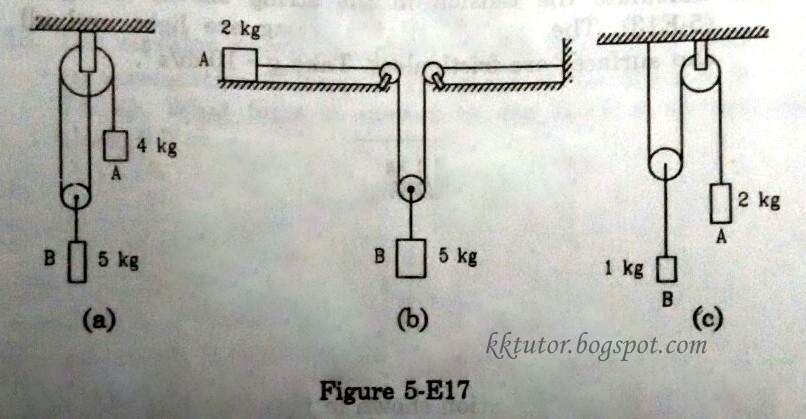CBSE Class 11-science Answered
Why work done is negative of potential energy.
Asked by VENIKA SINGHAL | 05 Sep, 2011, 11:24: AM
Consider an example, A mass hanging from the ceiling will have a kinetic energy equal to zero. If the cord breaks, the mass will rapidly increase its kinetic energy. This kinetic energy was somehow stored in the mass when it was hanging from the ceiling: the energy was hidden, but has the potential to reappear as kinetic energy. The stored energy is called potential energy. Conservation of energy tells us that the total energy of the system is conserved, and in this case, the sum of kinetic and potential energy must be constant. This means that every change in the kinetic energy of a system must be accompanied by an equal but opposite change in the potential energy.
U represents potential energy and K represent Kinetic energy.
So, Delta(U) + Delta(K) = 0
and
E = U + K = constant
According to work-energy theorem , amount of work done is equal to change in kinetic energy of the system.
W = [Delta]K
The change in the potential energy of the system can now be related to the amount of work done on the system
[Delta]U = - [Delta]K = - W
So work done is negaitive of potential energy.
Answered by | 05 Sep, 2011, 02:04: PM
Concept Videos
CBSE 11-science - Physics
Asked by veenasangeeth2020 | 30 Jan, 2024, 09:56: AM
CBSE 11-science - Physics
Asked by abdulkhadirchajjo549 | 06 Dec, 2023, 06:55: PM
CBSE 11-science - Physics
Asked by anushkaverma.25707 | 24 Aug, 2023, 07:35: PM
CBSE 11-science - Physics
Asked by sakethrockzz007 | 04 Aug, 2023, 11:17: PM
CBSE 11-science - Physics
Asked by dhruvund8769 | 04 Feb, 2023, 11:41: PM
CBSE 11-science - Physics
Asked by gdeadshot85 | 12 Jan, 2023, 10:28: AM
CBSE 11-science - Physics
Asked by vaniimtiyaz630 | 12 May, 2022, 12:19: AM
CBSE 11-science - Physics
Asked by KRISHPATEL.soc | 22 Apr, 2022, 04:19: PM
CBSE 11-science - Physics
Asked by bandarirohinipriya | 08 Feb, 2022, 09:46: PM
CBSE 11-science - Physics
Asked by unnatibhise08 | 22 Dec, 2021, 08:46: AM







